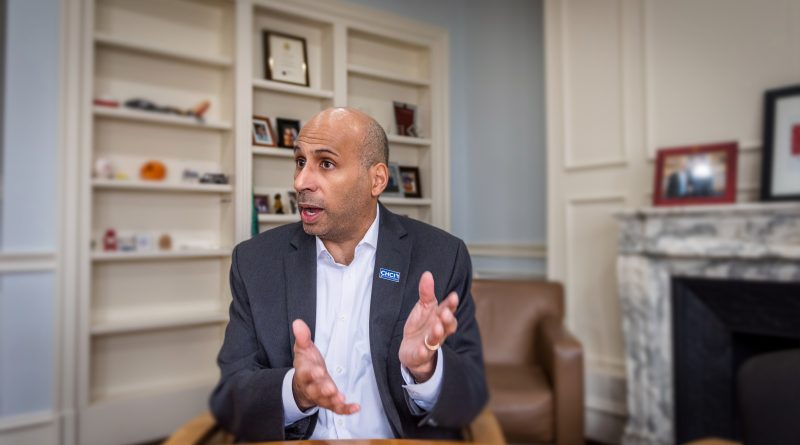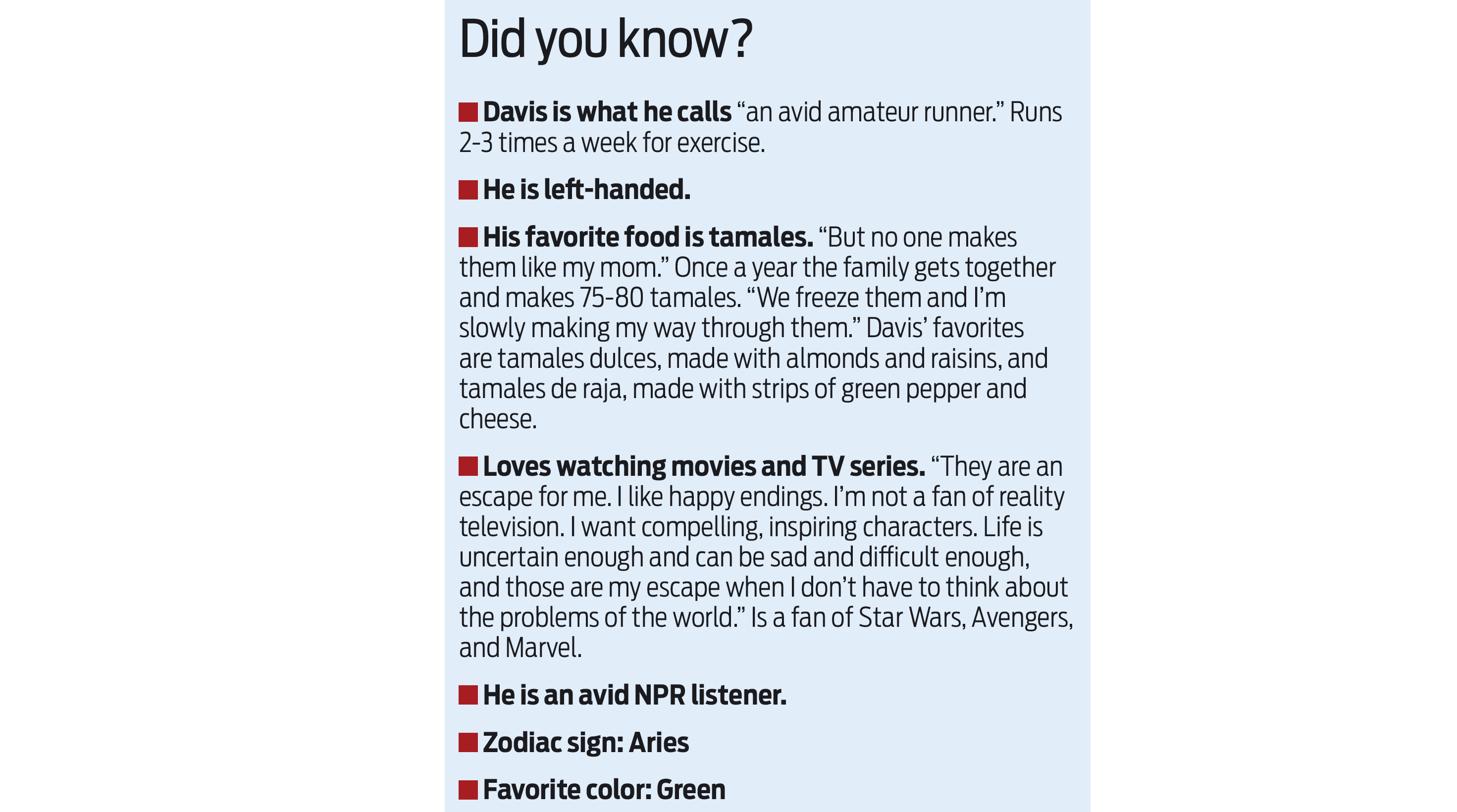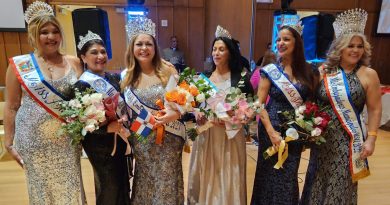Developing the Next generation of Latino leaders
PATRICIA GUADALUPE/WASHINGTON HISPANIC
Marco Davis represents a new generation of leadership in the country, running one of the premier groups in the nation’s capital as president and CEO of the Congressional Hispanic Caucus Institute (CHCI). The institute is the nonprofit arm of the Congressional Hispanic Caucus and dedicated to leadership development, primarily among young Latinos. The groups collaborate but are separate entities.
“CHC is the membership organization – the grouping of the members of Congress. There are 42 members. 38 in the House, four in the Senate; they as a group try to work on what they think is in the best interest of the Hispanic community,” Davis tells Washington Hispanic.
CHCI was founded by members of Congress in 1978.
“Our mission is to develop the next generation of Latino leaders, leadership development programs for students and professionals and we bring together thought leaders from the public, private and non-profit sector to discuss issues of concern to the Hispanic community in the U.S., most notably focusing on issues in order to identify solutions to those issues and challenges. We place interns and fellows in congressional offices,” as part of the organization’s mission to actually build a pipeline of people that are working on Capitol Hill,” Davis said, adding, “We’ve now grown over the 43 years to where now we’re a full-fledged nonprofit organization separate from the (Congressional Hispanic) caucus, although we do have members of Congress who sit on our board of directors, and on our advisory councils, and we still work closely with the members of the caucus and other members of Congress.”
Davis grew up in the New York City area, the son of a Jamaican father and Mexican mother, and is a graduate of Yale University. The former Obama administration official brings more than two decades of public policy and community service experience as CHCI’s sixth president. He describes how he felt when he was first approached for the top CHCI job.
“A group of friends reached out to me and I actually said no, that I wasn’t interested,” he chuckled. I was happy with my job at the time. I also thought I wouldn’t get the role – I wasn’t a CEO before and I thought the organization, given its history and prestige would want someone with more executive experience. My focus has been on working with the Latino community, or first generation, or young people, or people of color, or low-income people. Leadership development was a key theme going back to my earliest jobs. My friends persuaded me. I agreed to apply and even then I honestly and sincerely believed that I would apply for this position but I will not be selected,” Davis added. “But in the course of the selection process, I noticed that I wouldn’t get stuck. I found that I had answers to what a CEO would do. And I found myself becoming more interested and excited about the role and motivated to take on the challenge.”
What does he tell young Latinos and Latinas about aspiring — and actually applying to positions they, like him, might at first be hesitant to take on? Just go for it, he says.
“It’s self-restriction and holding back, thinking we’re not ready until we are more than ready. We might as well jump in and take a chance. It’s not a level playing field and we’re only going for things when other people have already attempted it.”
In addition to the leadership development programs which provide public service and leadership opportunities to students and young professionals, Davis says the organization has become a platform to bring together many sectors of importance to the Latino community.
“The public, members of Congress and their staff, corporate America, and the non-profit sector, community advocates, researchers, academics; we bring all those to talk about issues of concern to the Latino community with an eye toward solutions.” One of CHCI’s key gatherings is its annual conference held every September in Washington, D.C., during Hispanic Heritage Month.
Davis became CEO and president just eight months before the pandemic.
“Everything was turned upside down (because of the pandemic).” Davis and his team learned to pivot, including switching their annual in-person conference to remote. The silver lining there was that more than 4,000 signed on to the virtual conference in 2020, a number that was surpassed in subsequent conferences. While the gathering has gone back to in-person, panels are available online for those who aren’t able to travel to the nation’s capital, and Davis says CHCI will continue with this type of hybrid model going forward.
CHCI is part of Proyecto 20%, a coalition of Latino groups advocating for a greater number of Latinos and Latinos in senior-level positions in the Biden administration. The 20% comes from advocating for having the same percentage of Latino hires as its percentage in the U.S. population.
“This administration has responded to that challenge. They’re making a concerted effort. I hadn’t heard of that level of access before and they’re doing better than previous administrations.”
Davis is one of the few Afro Latinos in a national leadership role and not only considers the topic of race and equity — including discrimination within the community — personally important, but also one that requires greater attention.
“It was here in D.C. when I encountered people who talked about Afro Latinos and that there was a large population and that it was invisible within the Latino community. Folks now reach out to ask to share my perspective and thoughts on race relations in the Latino community and on the Afro Latino segment in our society. And (CHCI) programs include discussions on race relations – when we look at panels we have to look at the makeup of our panels and make every effort to make sure the panels are not just of people who look like of European descent.”
Davis emphasizes that there is no way that he would be able to do any of the work CHCI does all alone, and lauds his staff.
“I get to be featured in an article like this and it almost gives the false impression that I’m some sort of Atlas carrying the organization on my shoulders because the focus is on the leader but the reality is I have the easiest job because all I have to do is find good people and they do the hard work and do the heavy lifting. There is so much to do and they do all of it. Any success I have is a result of the amazing team I have.”





